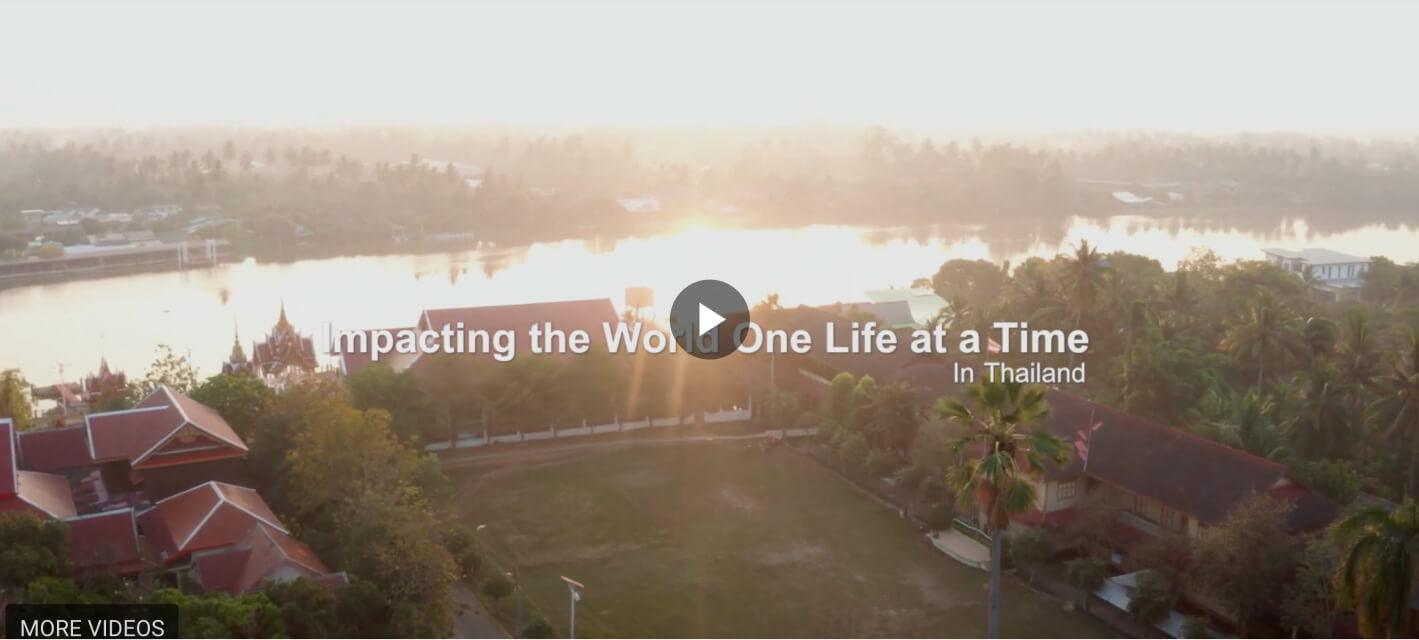
Thailand is currently facing two critical challenges. One is the provision of unhealthy meals to school kids, and the other is the threat posed to farmers due to inflation and climate change.
In 1999, the Ministry of Education of Thailand initiated its program of providing free school meals to every student. However, despite the inflation in the past 24 years, the school lunch budget has only increased by 11 Baht per student. The current budget ranges between 22 and 36 Baht per student and has remained unchanged since 2022.
Food quality and budget equality issues are also lingering in every corner of classrooms in Thailand. Schools in big cities get more budget allocation than schools in small provinces.
To address these challenges, Aratum’s team in Thailand kickstarted their first CSR activity in an educational institution. Wanna Yanwattana, Solution and Channel Manager of Aratum Thailand, proposed to help the Sakolwisuth School, located in Samutsongkram, the smallest province in Thailand.
“Students are the most important foundation of the future, and schools are the starting point of our children’s journey. When they grow up, they contribute back to the country,” said Asawanat Narueratpalangkorn, head of Sales in Thailand.
Aratum believes that education is the foundation of a thriving community. It is at our core to support the youth, especially by giving them their primary needs, such as food. One of the ways to address the Thai government’s limited food allocation is to become sustainable.
“Our school aims to comply with the direction of the Department of Education and create vocational classrooms for students. When Aratum sponsored us, we thought we should focus on helping our students become self-sufficient,” said Arporn Yanwattana, Principal of Sakolwisuth School.
Aratum donated a water pipeline for the school’s garden project. Our team then set off to the school to feed the students, teach them to plant, and introduce new organic farming techniques.
“Aratum’s project with our school is good for our students because they’ll learn and apply the knowledge to their daily life,” shared Nisachon Chokpokatrupkul, a teacher at Sakolwisuth.
A feeding program may fill children’s stomachs for a day but would not sustain them afterward. Aratum’s activity in Sakolwisuth School ensured that the students’ lives would change and bring them a promising future. We taught the children about the importance of agriculture, its application, and how to become entrepreneurs.
“Before this activity, the students were not aware of the importance of agriculture. Now, they learned how to become sustainable–to plant and harvest their own seeds. They also figured out the value of their products and how to sell them in the local market,” shared Nisachon Chokpokatrupkul, a teacher at Sakolwisuth.
“Aratum provided us with healthy lunches, and I am thankful for that. But most of all, they taught us how to process raw materials, like pandan tea, fried banana crackers, and chips. Our produce will make us earn income, too,” said Pranpreeya Krangda, a student at Sakolwisuth.
We are committed to becoming a catalyst of change, as this activity may inspire other institutions to embrace similar practices. By sowing the seeds of self-sufficiency and entrepreneurship, we continue to imbibe a future where every individual has the opportunity to thrive despite challenges and disruptions.
“In Aratum, we develop people. We help them cultivate a garden,” Wanna Yanwattana, Solution and Channel Manager of Aratum Thailand, concluded.
© 2024 Aratum or an Aratum affiliate company. All rights reserved. No part of this publication may be reproduced or transmitted in any form or for any purpose without the express permission of Aratum or an Aratum affiliate company. The information contained herein may be changed without prior notice. Some software products marketed by Aratum and its distributors contain proprietary software components of other software vendors. National product specifications may vary. These materials are provided by Aratum or an Aratum affiliate company for informational purposes only, without representation or warranty of any kind, and Aratum or its affiliated companies shall not be liable for errors or omissions with respect to the materials. The only warranties for Aratum or Aratum affiliate company products and services are those that are set forth in the express warranty statements accompanying such products and services, if any. Nothing herein should be construed as constituting an additional warranty. In particular, Aratum or its affiliated companies have no obligation to pursue any course of business outlined in this document or any related presentation, or to develop or release any functionality mentioned therein. This document, or any related presentation, and Aratum’s or its affiliated companies’ strategy and possible future developments, products, and/or platforms, directions, and functionality are all subject to change and may be changed by Aratum or its affiliated companies at any time for any reason without notice. The information in this document is not a commitment, promise, or legal obligation to deliver any material, code, or functionality. All forward-looking statements are subject to various risks and uncertainties that could cause actual results to differ materially from expectations. Readers are cautioned not to place undue reliance on these forward-looking statements, and they should not be relied upon in making purchasing decisions. Aratum and other Aratum products and services mentioned herein as well as their respective logos are trademarks or registered trademarks of Aratum (or an Aratum affiliate company) globally. All other product and service names mentioned are the trademarks of their respective companies. See aratum.com for additional trademark information and notices.